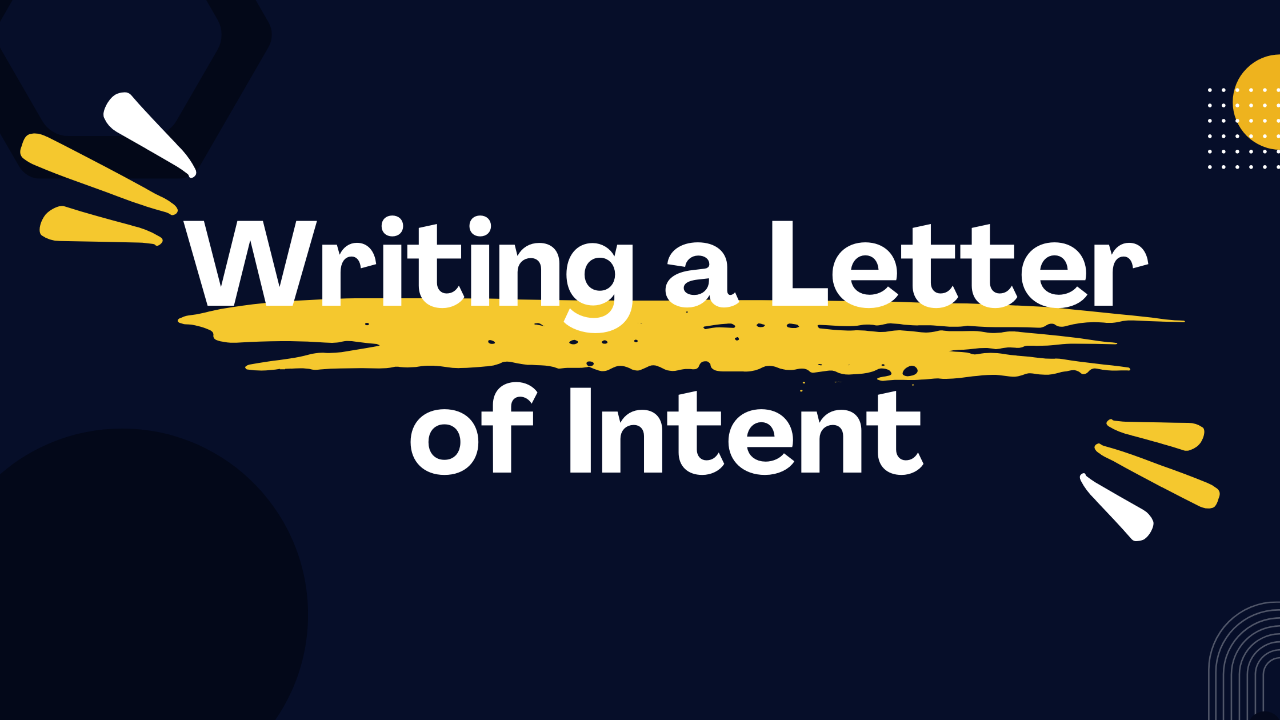Writing a Letter of Intent

When you're ready to move forward with acquiring a business, constructing a Letter of Intent (LOI) is an essential piece of the process. It's an "informally formal" way to specify your intentions and lay the groundwork for upcoming negotiations and purchase.
What is an LOI?
A Letter of Intent is simply an "agreement to agree." It's a document that outlines and identifies the terms of an agreement between two or more parties and can help minimize future misunderstandings and streamline the final deal.
Think of writing an LOI as courting. Someone special has caught your eye, you've spent some time chatting them up and getting to know them (aka, research), and there seems to be mutual interest between both of you. You like what they're selling. They like what you're offering. And both parties have agreed to dinner, drinks, or a picnic on the beach. You go into the date with the hope of something permanent, like marriage (aka, taking ownership of the Business), but nothing is legal, official, or permanent at this stage.
What Goes in an LOI?
While the specifics of each Letter of Intent will vary based on the type of business you want to buy, here is a general guideline of items you may want to consider including.
Introduction:
You should begin your LOI with a brief introduction that outlines the purpose of the document, clearly identifies both Buyer and Seller, identifies the Business, and explains what the LOI will cover.
Timeline:
Establish a reasonable timeline for negotiations and the transaction to be completed. This could include dates for specific goals or benchmarks that must be reached and/or a final target deadline. You may also want to allow for extensions of these deadlines if it becomes necessary.
Purchase Price:
Obviously, this is a biggie and one you should pay very close attention to; it's a lot more than just slapping a number on the letter and moving on. How is it being paid? When is it being paid? All in cash? Seller financing? Will it be contingent on the Buyer getting funding? Will it be issued in installments? What happens if due diligence (covered later) uncovers information that impacts the value of the company and therefore impacts what you are willing to pay? Be specific.
Due Diligence:
Doing due diligence is where you really dig deep and get to know the Business from the inside out. (Throwing it back to the courting analogy, it's getting past the polite small-talk about the weather and confessing to your deepest, darkest secrets.) You'll be going over their financials and records with a fine-tooth comb to ensure you have a complete understanding of the Business you intend to acquire.
Within the LOI, you should specify what the due diligence process will include and that you'll have the Seller's full cooperation to provide the required documentation.
Confidentiality:
Both parties may wish (and should!) to agree not to disclose the proposed business acquisition to the general public. It should also be noted that all information collected will be kept confidential and used for the intended purpose - and that confidentiality will remain in place even if the deal isn't finalized.
Exclusivity, Contingencies, and Termination:
During the due diligence process, the LOI should acknowledge that the Seller cannot enter into negotiations with any other Buyer (it's time to make your relationship exclusive!). It should also specify that there is no obligation to finalize the agreement if the Buyer is dissatisfied with any of the findings and that both parties have a right to terminate and walk away.
Simple examples of Letters of Intent are plentiful on the World Wide Web, and free and fee-based templates are available for download if you don't want to start yours from scratch. Depending on the deal's complexity, it may be worth having it drafted by a professional, or if you're a first-timer, by someone who has written one before. Remember, the LOI is not a legally binding agreement you're signing; rather, it's meant to lay the groundwork so a long union can be reached and both parties can live happily ever after.



